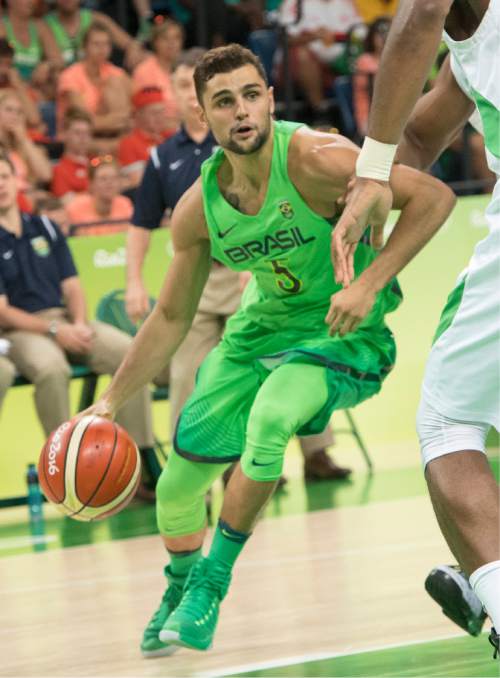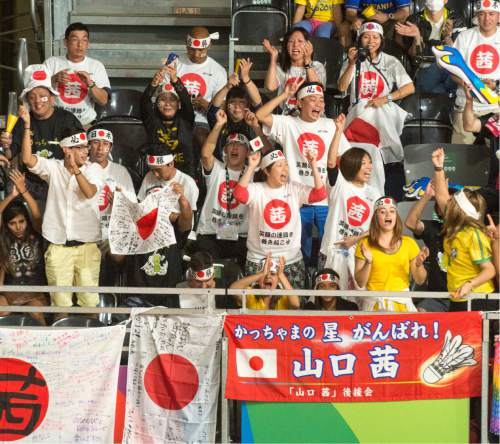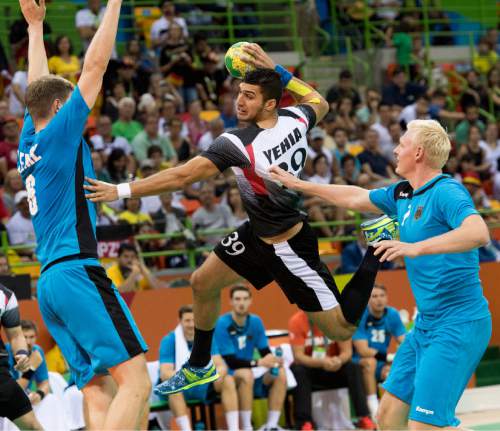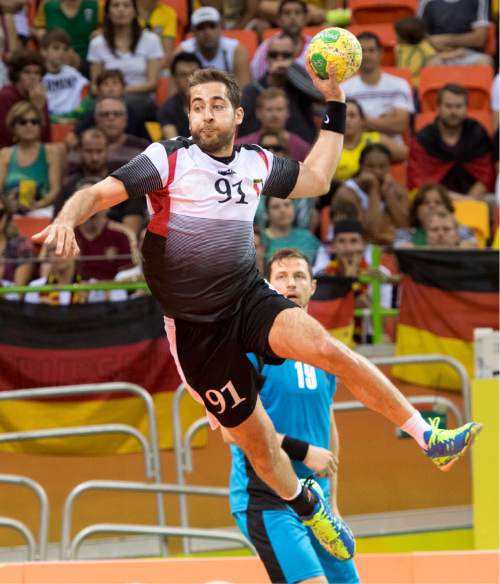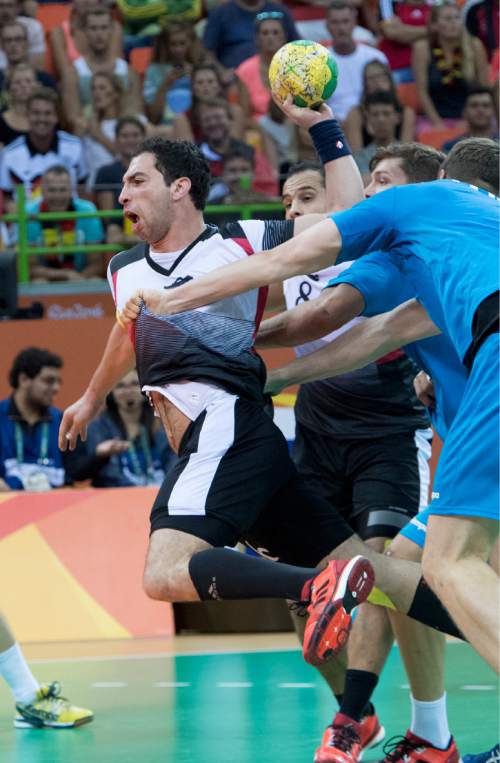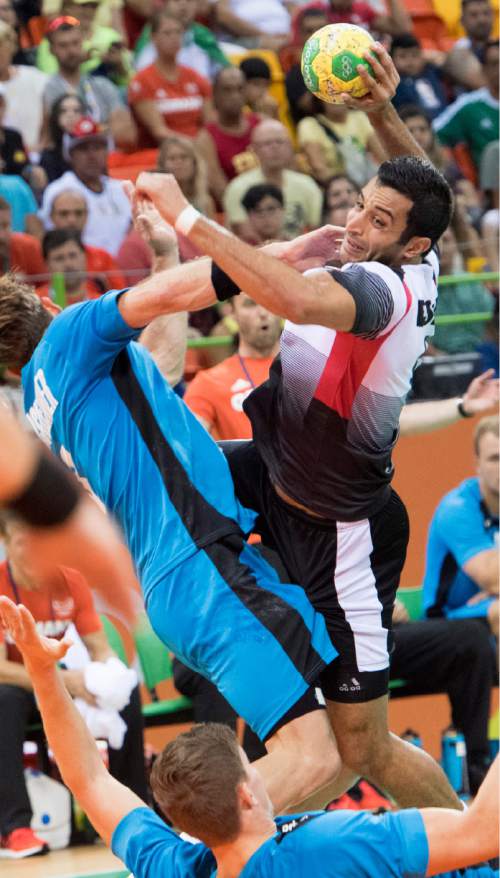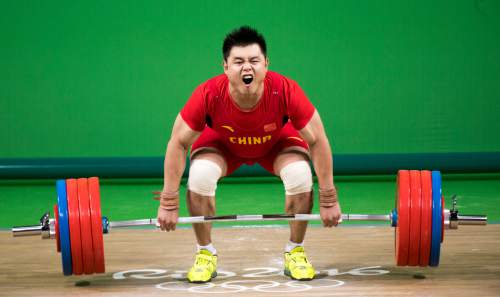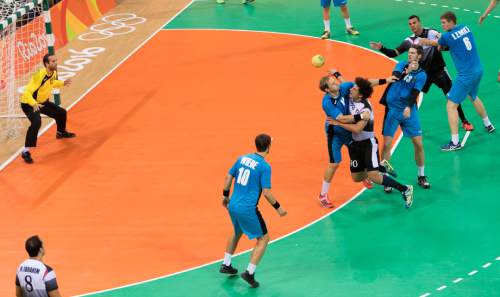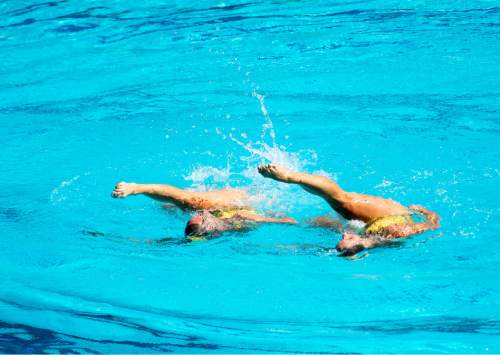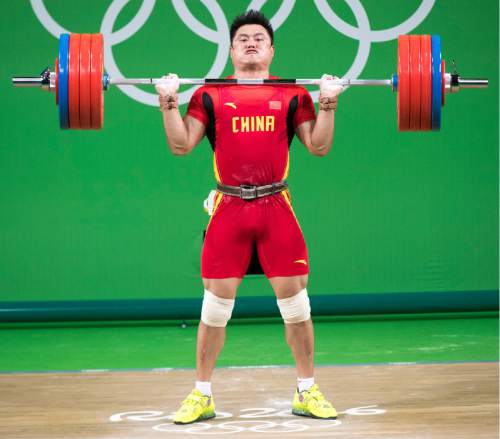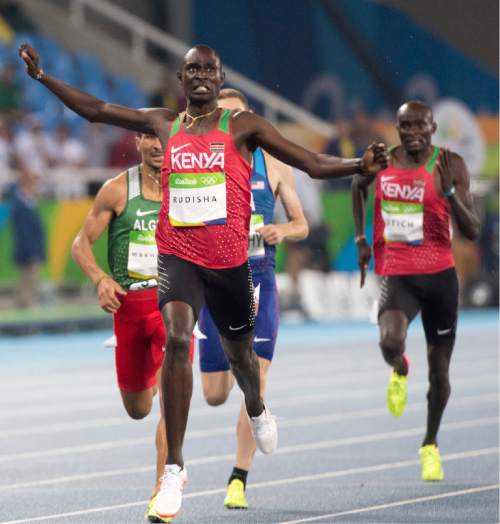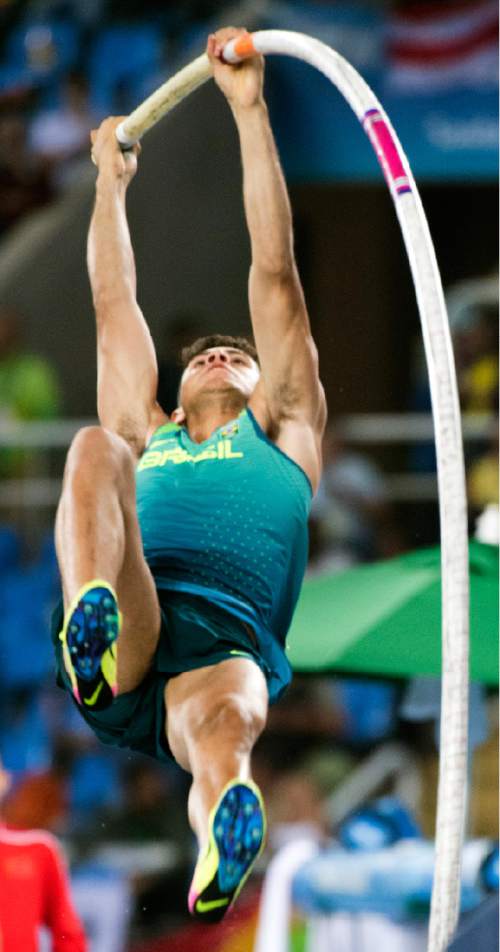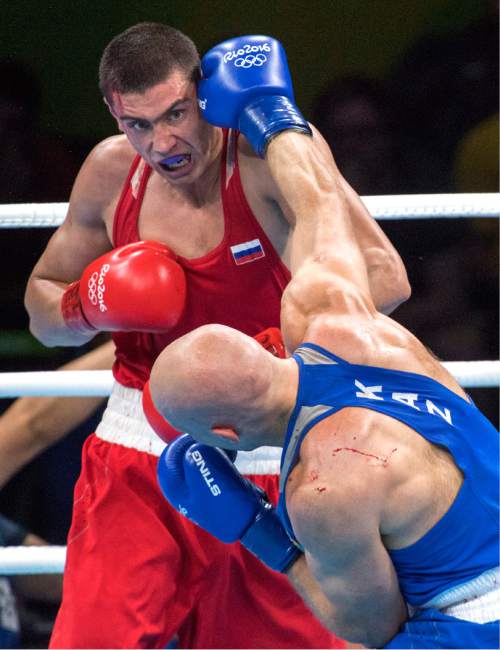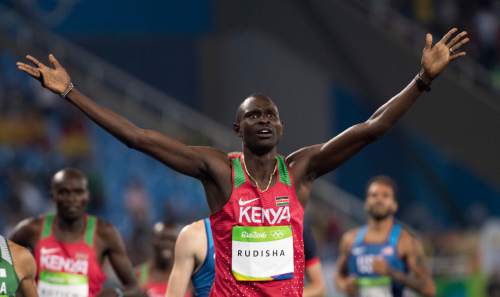This is an archived article that was published on sltrib.com in 2016, and information in the article may be outdated. It is provided only for personal research purposes and may not be reprinted.
Rio de Janeiro
The Olympic decathlon demands high-level training, commitment and endurance.
This is probably true for athletes, as well.
In the spirit of the Summer Games, I pursued my own version of the decathlon — attending 10 events in 10 venues Monday. If they opened the gates to the Olympics, how would you spend the day? Here's how I answered that question:
10:05 a.m. • Is this Rio, or my imagination? It could be Boise, actually. The playing surface of the Olympic field hockey tournament is bright blue, much like Boise State's original blue turf.
Moments into the game,New Zealand's Anita McLaren scores after taking a pass from a teammate via a penalty corner play. The Australian defenders grab masks stored behind the net and stand next to their goalkeeper, but they fail to stop McLaren's shot for the first goal of New Zealand's 4-2 victory.
11:45 a.m. • After I've steered us onto the wrong bus route inside the Olympic Park, I allow Tribune photographer Rick Egan only five minutes to shoot synchronized swimming, to restore our schedule. I always giggle about this sport, stemming from when some West Texas A&M offensive linemen I knew listed synchronized swimming as their hobby, and the school printed it in the media guide.
But I'm telling you, this sport requires serious athletic ability. Not just anyone could perform the fishtail, barracuda twist, eggbeater or other required elements.
12:15 p.m. • After a walk to a wrong venue and a longer walk to the right one on a humid, 85-day day, we make it to the Germany-Egypt handball match at halftime. Toughest job in the Olympics? Handball goalie.
Six players run around and pass the ball and then jump (by rule) and fire it toward the net. Germany's Andreas Wolff has allowed 12 goals as of halftime, yet the in-arena announcer declares him "the man of the match, so far." Wolff gives up another 13 goals in the second half, but Germany wins 31-25.
2 p.m. • In the venue where Simone Biles, Aly Raisman and other American gymnasts have starred in these Games, no American men are entered in the individual rings final. Greece's Eleftherios Petrounias shows so much strength and precision as the second gymnast to compete that I declare him the winner and move on — and he does earn the goal medal.
2:20 p.m. • Partly for the sake of submitting one daily story and mostly because I've come to love watching Brazil's teams play in front of home crowds, I give myself one last look at Jazz guard Raul Neto's basketball team. The Brazilians wobble in the third quarter before surging to a 17-point win. But they have to cheer for rival Argentina to beat Spain in the next game so they can qualify for the quarterfinals. That's awkward. And it doesn't work.
5:45 p.m. • Next door, wrestling gold medals are being awarded and the Olympic mascot is being thrown into the ring. Following the historic practice of tossing a towel to indicate the end of a round, a stuffed version of Vinicius — a cat-like creature described as "a mixture of all the Brazilian animals" — is used in the Olympics. Russia's Davit Chakvetadze storms to a 9-2 win in a Greco-Roman match.
6:55 p.m. • Another wrong venue, but this misstep will turn out reasonably well. Looking for boxing, we discover badminton. I've always defined a sport with this criterion: Can you play it or practice it in your backyard? Badminton qualifies. And like any sport played at an Olympic level, this stuff is amazing to watch. The swings are ferocious and the rallies are long. Japan's Akane Yamaguchi beats a Thai opponent in a women's match.
7:25 p.m. • OK, boxing. University of Utah basketball coach Larry Krystkowiak loves to describe a game as a heavyweight fight. Now that I've seen a genuine heavyweight fight, he's wrong. This three-round battles ends when, shockingly, the referee raises the hand of Russia's Evgeny Tischenko. The fans boo like crazy, because Kazakhstan's Vassily Levit seemingly dominated the bout, with Tischenko getting cut above the eye and even falling down when he missed a wild punch. Yet all three judges score it 29-28 for Tischenko, who wins the gold medal.
7:45 p.m. • One thing about weightlifting, athletes succeed or fail immediately. Either they raise the bar in triumph and then drop it like a microphone and walk off the stage, or they buckle. The struggles are dramatic, regardless. After failing on his third attempt, Poland's Bartlomiej Wojciech Bonk drops the bar, stares at it for a moment and then shrugs and waves as he walks away.
9:40 p.m. • Several hours after the sun was shining brightly, steady rain is falling as we search the Rio Centro complex for a bus. After we find it and make another connection, rain is intensifying enough to cause a 31-minute delay in the track and field competition, where we're headed.
The rain subsides by the time we arrive. For two weeks in Rio, I've thought about this weird phenomenon of coming to multiple Olympics and never seeing Michael Phelps or Usain Bolt compete, while being committed to covering athletes with Utah ties. So I take the elevator to the fifth-floor press area and walk through the tunnel, and who receives the gold medal he earned the previous night in the 100 meters? Usain Bolt. He's walking, not running, but that's a breakthrough. My work is finished.
Twitter: @tribkurt —
Not just another day in Rio
The 10 events Tribune sports columnist Kurt Kragthorpe and photographer Rick Egan covered at the Olympics on Monday:
1. Field Hockey
2. Synchronized Swimming
3. Handball
4. Men's Gymnastics
5. Men's Basketball
6. Greco-Roman Wrestling
7. Badminton
8. Boxing
9. Weightlifting
10. Track and Field


